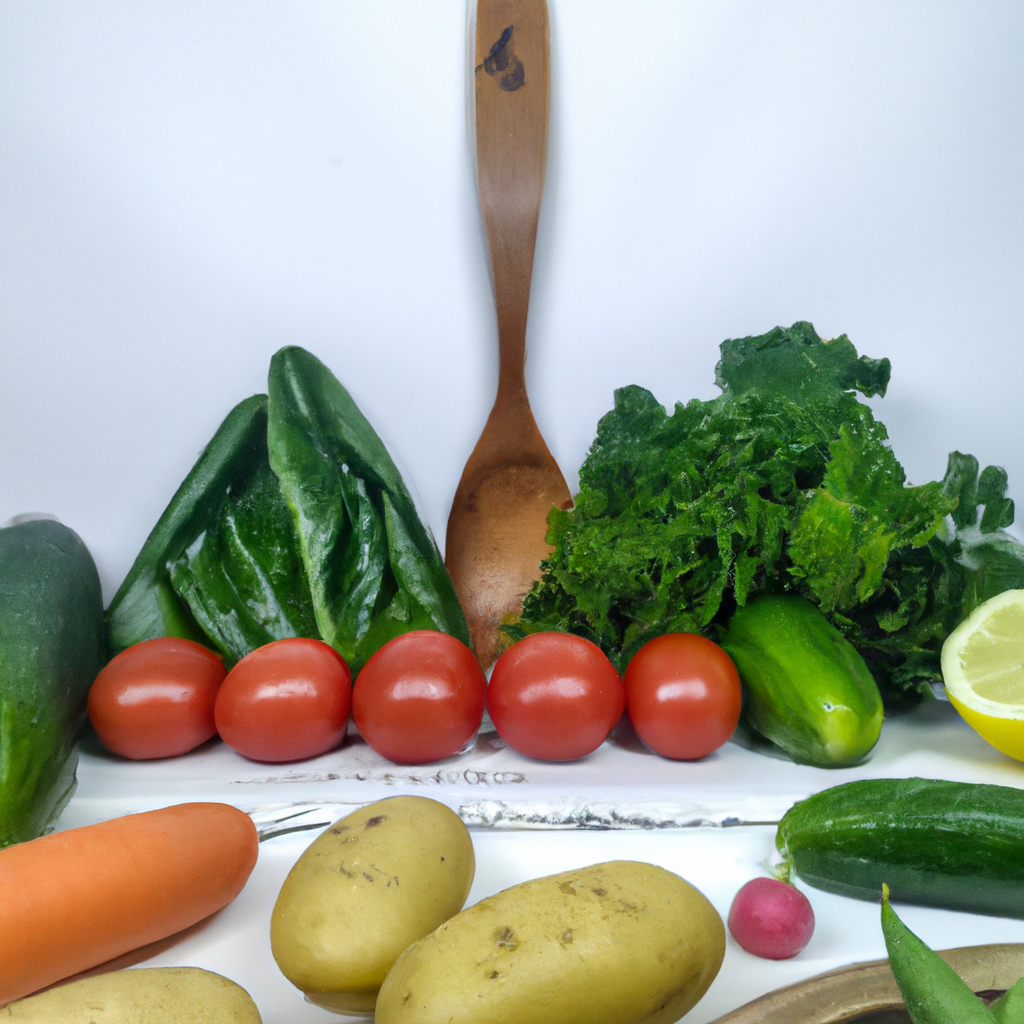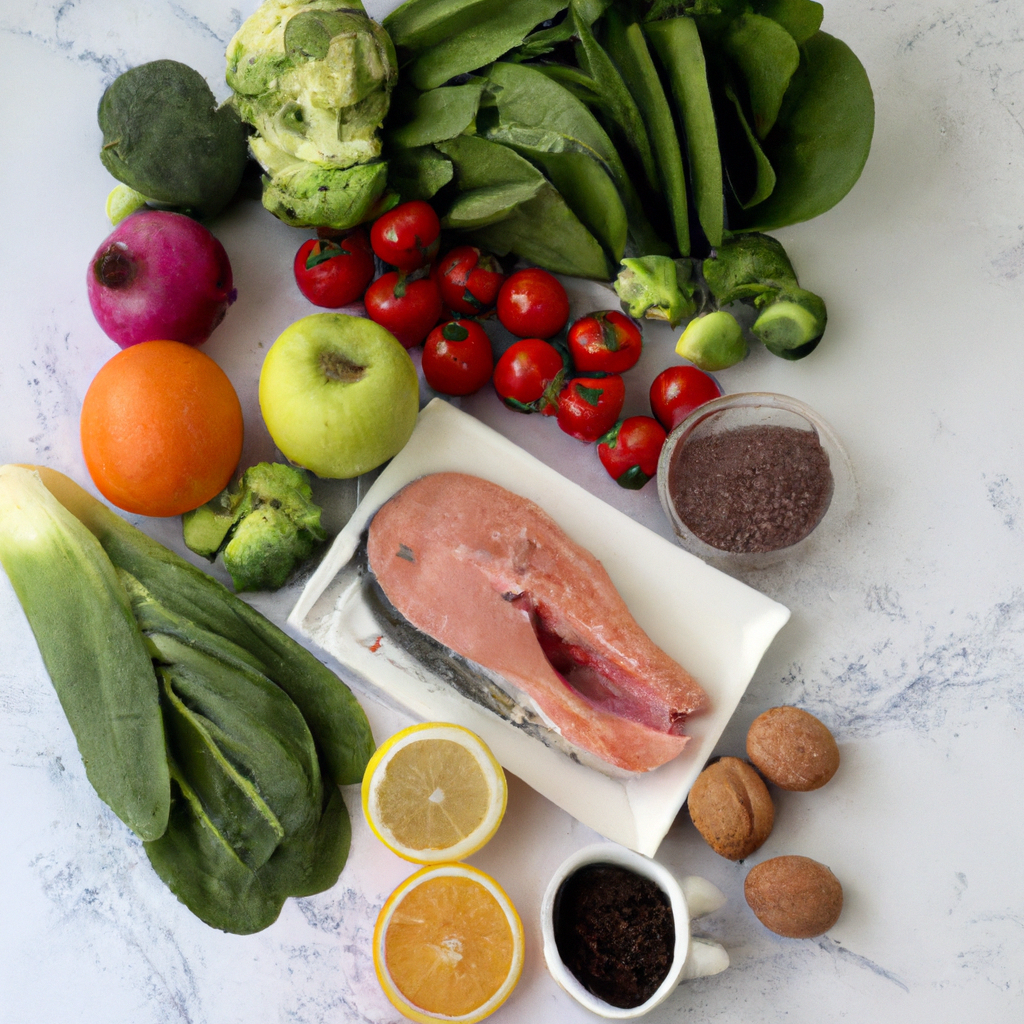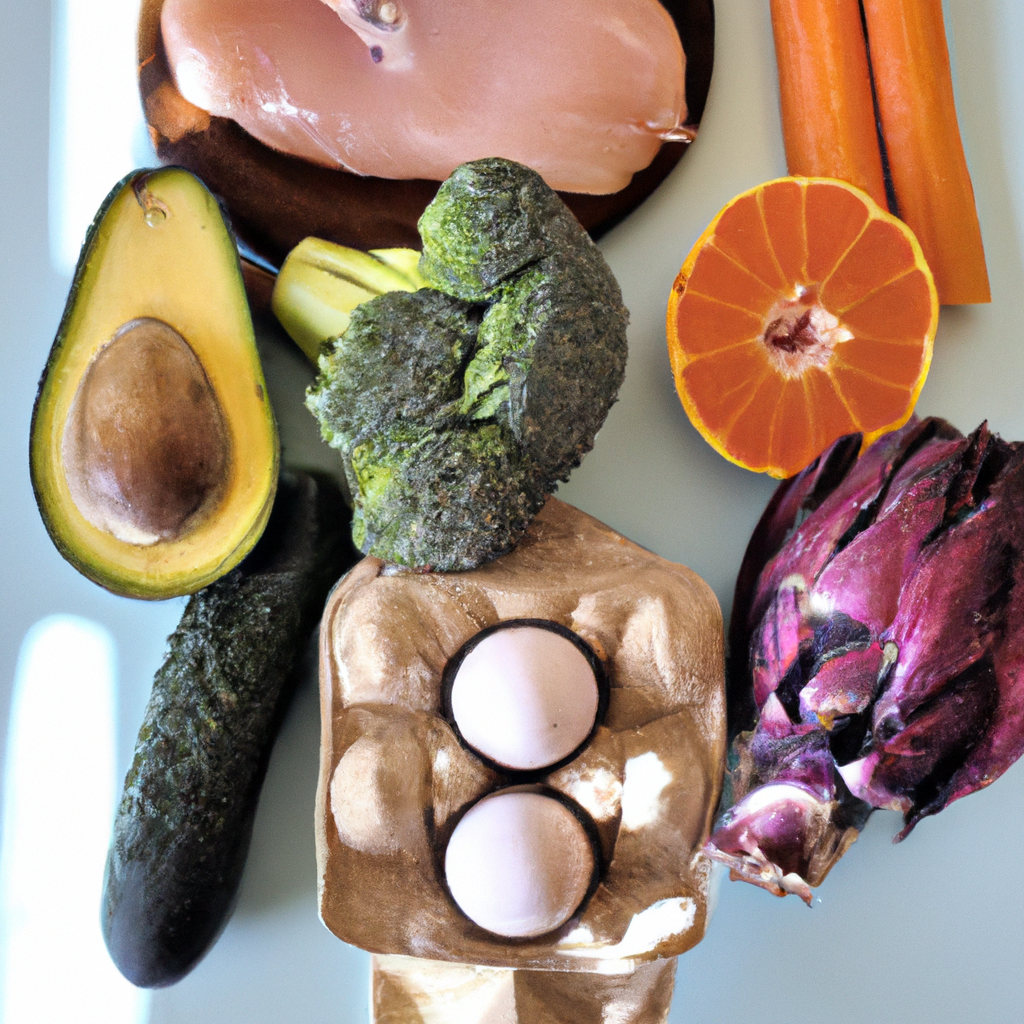Introduction
Belly fat is one of the most common issues people face today. It’s not only unhealthy, but it can also make you self-conscious and uncomfortable in your own skin. Fortunately, the right diet can help reduce belly fat and get you on track to a healthier lifestyle.

There are a variety of foods that can help fight belly fat, some of which may surprise you! In this article, we’ll explore some of the best foods for fighting belly fat and how they can help you achieve your health goals.
The Truth About Belly Fat
For years we’ve been told that eating fat will add inches to our waistlines, but the truth is, not all fat is created equal. “Bad” fats, like trans fats and saturated fats, can actually contribute to weight gain, but “good” fats—unsaturated fats—can actually help fight belly fat.

Unsaturated fats, which are found in plant-based oils like olive oil and canola oil, avocados, nuts and seeds, fish, and soybeans, have been shown to fight belly fat. A recent study in the Journal of Nutrition found that people who added a daily serving of unsaturated fat to their diet lost more weight around their waists than those who ate the same amount of calories from other sources.
One key player in unsaturated fats that helps fight belly fat is omega-3 fatty acids. These healthy fats have been shown to decrease inflammation throughout the body (which can lead to weight gain) and improve insulin sensitivity (which helps keep blood sugar levels stable and prevents cravings).

Omega-3 fatty acids can be found in fish like salmon and tuna, as well as flaxseeds, chia seeds, walnuts, and soybeans. So next time you’re looking to trim down your waistline, reach for foods high in unsaturated fats—they just might be the secret weapon you need!
What Causes Belly Fat?
Dietary factors are thought to be the primary cause of belly fat accumulation. While some foods are known to promote weight gain, others may actually help to reduce it. Here are some of the key foods that have been shown to fight belly fat:

Whole grains: Studies have consistently shown that people who consume more whole grains tend to have less belly fat than those who eat refined carbs or no grain at all. This is likely due to the fact that whole grains contain more fiber, which helps keep you feeling full and prevents overeating.
Lean protein: Protein is an essential nutrient for weight loss and management. It helps build and preserve muscle tissue, which in turn helps burn more calories at rest. Aim to include sources of lean protein such as fish, poultry, beans, and tofu into your diet.

Healthy fats: Contrary to popular belief, not all fats are bad for you. In fact, certain types of healthy fats can actually help reduce belly fat. Include sources of unsaturated fats such as olive oil, nuts, and avocados into your diet. Soluble fiber: This type of fiber absorbs water and forms a gel-like substance in the gut, which helps slow down digestion and keeps you feeling full for longer periods of time. Good sources of soluble fiber include oats, bran flakes, barley, and legumes.
Foods That Help Fight Belly Fat
When it comes to weight loss, there is no one-size-fits-all approach. What works for one person may not work for another. However, there are certain foods that have been shown to help fight belly fat.

Soluble fiber is one of the best nutrients for weight loss. It absorbs water and forms a gel-like substance in the gut, which helps slow down digestion and keep you feeling full for longer. Studies have shown that soluble fiber can help with weight loss by reducing appetite and calorie intake.
Some good sources of soluble fiber include oats, barley, fruits, vegetables, and legumes. Adding these foods to your diet can help you reach your weight loss goals. Another nutrient that has been shown to be helpful for weight loss is protein. Protein helps you feel full and satisfied after eating, which can prevent overeating and snacking throughout the day. Getting enough protein can also help preserve muscle mass during weight loss.

Good sources of protein include lean meats, poultry, fish, eggs, dairy products, beans, and nuts. Incorporating these foods into your diet can help you reach your weight loss goals and improve your overall health.
Avocados May Reduce Your Belly Fat
Avocados are rich in healthy fats that help reduce belly fat. In one study, participants who ate avocados daily for 12 weeks had a significant reduction in belly fat compared to those who did not eat avocados. Additionally, avocados are a good source of fiber, which helps keep you feeling full and may help reduce your overall calorie intake.

Eating avocados as part of a healthy diet can help reduce belly fat and improve your overall health. This can be accomplished by including avocados in meals and snacks, being mindful of portion sizes, and combining them with other nutrient-rich foods such as lean proteins, whole grains, and vegetables.
Oats Are Always A Good Option
If you’re looking for a belly-fat-fighting food, look no further than your own kitchen. Oats are full of fiber and beta-glucan, which has been shown to help reduce cholesterol levels and decrease the risk of heart disease. Plus, they’re a good source of protein and can help keep you feeling full longer.

Oats are easy to add to your diet, since you can enjoy them for breakfast as oatmeal, a warm porridge, or overnight oats. They can also be added to baked goods such as muffins, cookies and energy bars. And if you’re looking for a savory way to enjoy oats, try making oat-based veggie burgers or adding them to soups and stews.
General Lifestyle Factors
There are many different factors that can contribute to belly fat, including genetics, hormones, and lifestyle choices. But there are some lifestyle changes you can make to help fight belly fat.

First, focus on getting enough protein. Protein helps build lean muscle mass, which in turn helps burn more calories. Good sources of protein include lean meats, fish, eggs, beans, and nuts.
Second, include healthy fats in your diet. Healthy fats help improve insulin sensitivity and reduce inflammation. Good sources of healthy fats include avocados, olive oil, salmon, and nuts.

Third, get plenty of fiber. Fiber helps fill you up and keeps you regular (which can help reduce bloat), plus it provides essential nutrients like vitamins and minerals. Good sources of fiber include fruits, vegetables, whole grains, legumes, and nuts. Fourth, stay active. Exercise not only burns calories but also helps reduce stress levels and improve insulin sensitivity. And don’t forget to add strength training to your routine – it builds muscle mass which also helps burn more calories.
Not Getting Enough Sleep Leads to Belly Fat
If you’re not getting enough sleep, it can lead to weight gain and belly fat. Not getting enough sleep can disrupt your body’s natural hormone balance, which can lead to increased hunger and cravings. It can also affect your metabolism, making it harder to lose weight.

Lack of sleep has also been linked to an increased risk of developing type 2 diabetes. So if you’re not getting enough sleep, be sure to address the issue. Otherwise, you could be setting yourself up for weight gain and all the associated health risks that come with it.
Social Jetlag Can Lead to More Fat Mass
It’s not just a lack of sleep that can lead to weight gain and an increased risk of obesity; social jetlag can also play a role. Social jetlag is when your internal body clock is out of sync with your social or work schedule. This can lead to late nights and early mornings, which can throw off your natural sleep patterns.

research has found that social jetlag is associated with an increase in fat mass. One study showed that people who had greater social jetlag were more likely to be obese. Other research has found that social jetlag is linked to a higher intake of calories, especially from unhealthy foods.
So if you’re trying to lose weight or prevent obesity, it’s important to keep your internal body clock in sync with your daily routine. That means getting enough sleep and avoiding late nights and early mornings.

It might also mean making some changes to your work or social schedule so that you’re not constantly throwing off your natural sleep patterns. Getting enough sleep is as important as a good diet.
How Can I Lose Belly Fat Overnight?
Losing belly fat overnight is possible, but it requires making some changes to your diet and lifestyle. Here are a few ideas to get you started: Cut out sugary and processed foods: These foods are high in calories and contribute to weight gain. Replace them with healthier options like fruits, vegetables, and whole grains.

Increase your protein intake: Protein helps keep you feeling full longer and can help reduce belly fat. Choose lean proteins like chicken, fish, tofu, or beans. Reduce your stress levels: Stress can lead to cortisol production, which can cause weight gain around the midsection. Find ways to relax and de-stress every day.
Get plenty of sleep: Sleep deprivation can lead to increased appetite and cravings for unhealthy foods. Make sure you’re getting enough rest each night. Making these changes will help you lose belly fat overnight and improve your overall health in the long run.

Processed foods often have high levels of sugar, sodium, and fat. This can lead to health issues such as obesity and heats disease. Processed foods are also very addicting. These foods stimulate the dopamine center of the brain. In other words, It tells our brains, “I like this; let’s eat more!”
To do a bicycle crunch, lie on your back on the floor with your knees bent and your feet flat on the ground. Place your hands behind your head, then lift your shoulders off the ground and twist your torso to bring one elbow to meet the opposite knee.

Repeat on the other side. Finally, swimming is an excellent way to burn calories and tone up all over, including the abdominal area. Just 30 minutes of swimming can burn over 200 calories!
General Lifestyle Improvements
When it comes to losing weight, there is no one-size-fits-all solution. However, making some general lifestyle improvements can go a long way in helping you reach your goals. Here are five lifestyle changes that can help you fight belly fat:

Get more sleep: Lack of sleep has been linked to an increased risk of weight gain, including belly fat. So aim for 7-8 hours of quality sleep every night. Exercise regularly: Exercise not only helps you burn calories, but can also help reduce visceral fat and lower stress levels. Choose an activity that you enjoy and make it a part of your regular routine.
Eat more protein and fiber: Protein and fiber are two nutrients that have been shown to promote weight loss, including reduction in belly fat. Aim for 25-30 grams of protein and 20-25 grams of fiber per day.

Limit added sugar: Added sugar is a major contributor to weight gain and can increase the risk of developing obesity, type 2 diabetes, and other chronic diseases. Therefore, it’s important to limit your intake of sugary foods and drinks. Drink plenty of water: Drinking enough water is essential for overall health and can also help boost weight loss by helping you feel full and reducing calorie intake.
Conclusion
If you’re looking for a way to fight belly fat, then the foods mentioned in this article could be a great place to start. Adding these nutrient-dense and antioxidant-rich foods into your diet can not only help you lose weight but also provide other health benefits like reducing inflammation and improving gut health.

Of course, making sure you get plenty of exercise and sleep is just as important as eating well when it comes to healthy weight loss. But if belly fat is something that has been bothering you recently, incorporating some of these key ingredients may be one small step towards attaining your fitness goals.